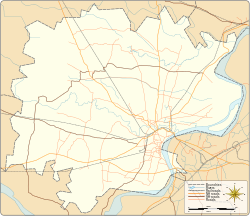 Bharat Kala Bhavan main building | |
| Established | 1 January 1920 |
|---|---|
| Location | Banaras Hindu University, Varanasi, India |
| Coordinates | 25°16′17″N82°59′46″E / 25.271490°N 82.995994°E |
| Collections | Archaeological materials, Paintings, Textiles & costumes, Decorative art, Personalia collections, Indian philately, Literary and Archival materials |
| Collection size | 104,376 |
| Founder | Rai Krishnadasa & Mahamana Pandit Madan Mohan Malaviya |
| Chairperson | Rabindranath Tagore (first honorary & Life chairman) |
| Curator | Dr. Anil Kumar Singh Vinod Kumar Dr. D. B. Singh Dr. Priyanka Chandra Deepak Bharathan Alathur |
| Owner | Banaras Hindu University |
| Website | bhu.ac.in/kala |
Bharat Kala Bhavan is a university museum located in Banaras Hindu University, Varanasi, India. It has been instrumental in the dissemination of knowledge on Indian art and culture. It is one of the important touristic attractions in the Banaras Hindu University and in the city of Varanasi. [1] [2] [3] [4]


